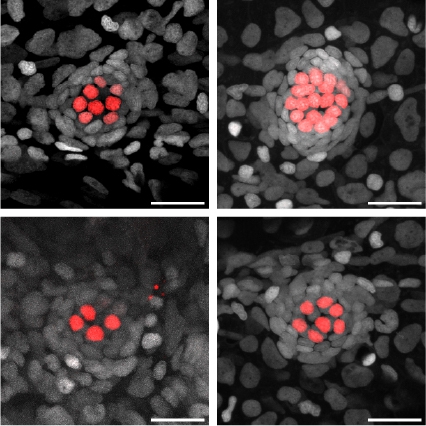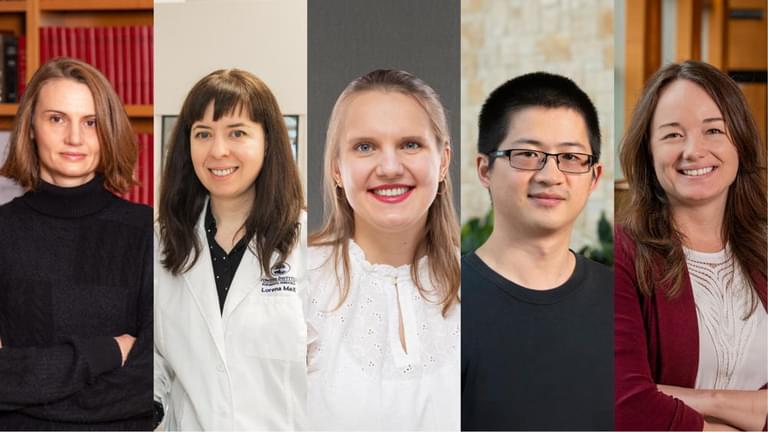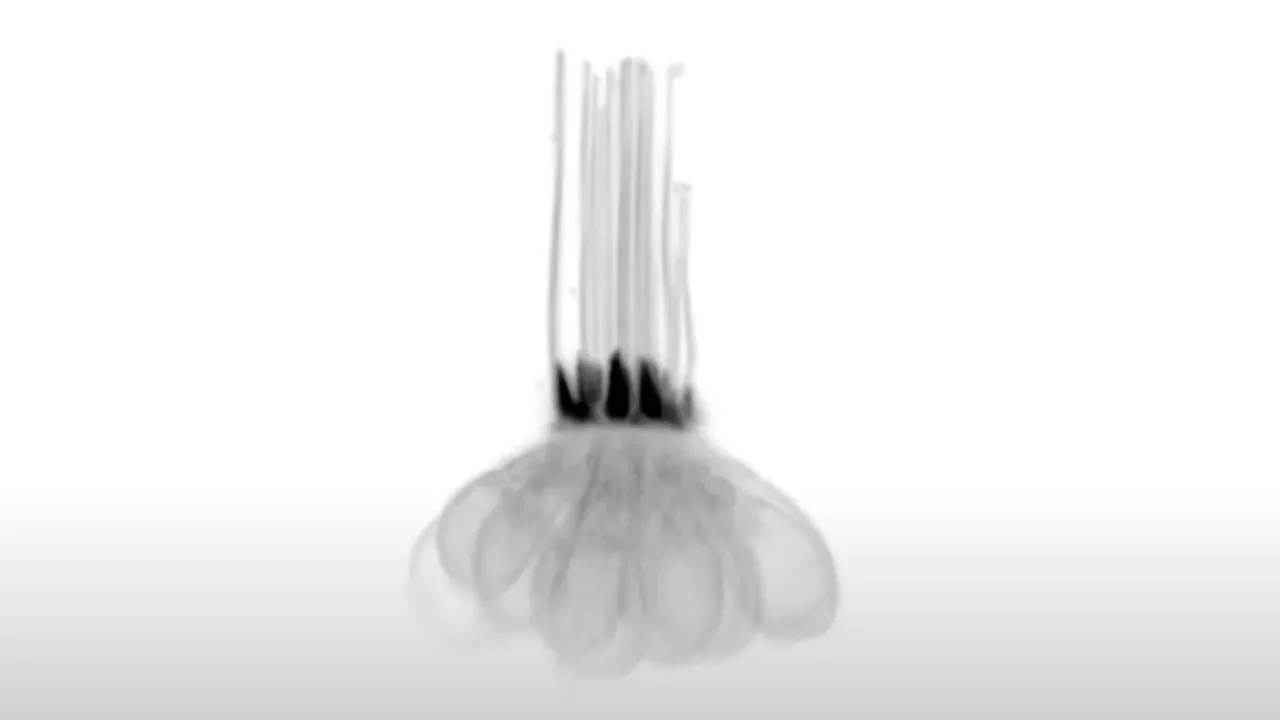News

03 October 2025
How one gene flips the fate of sensory cells
Stowers scientists discover a master gene in zebrafish that determines hair cell type, a potential target for restoring hearing loss in humans
Read Article
News
Four postdoctoral researcher associates and one visiting scientist were recently awarded prestigious grants to accelerate their research.

Five Stowers researchers receive prestigious grants
Four postdoctoral researcher associates and a visiting scientist at the Stowers Institute for Medical Research were recently awarded prestigious grants to accelerate their research.
Postdoctoral Research Associate Aurelie Hintermann, Ph.D., from the lab of Investigator Tatjana Piotrowski, Ph.D., received a two-year grant award from the Swiss National Science Foundation. The funding will support research to identify and compare gene expression and regulation in zebrafish and killifish, potentially uncovering evolutionary trends that explain their diverse phenotypes.
From the lab of Investigator Paul Trainor, Ph.D., Postdoctoral Research Associate Lorena Maili, Ph.D., earned a coveted three-year F32 award from the National Institutes of Health to support her research on craniofacial development. Using mice as a model system, this grant will support Maili’s investigation of the role of ribosomes, which are the protein factories of the cell, during early development. Disruptions in ribosome formation within neural crest cells lead to craniofacial conditions like Treacher Collins Syndrome.
Also from the Trainor Lab, Postdoctoral Research Associate Natasha Shylo, Ph.D., received a prestigious two-year K99 award from the National Institutes of Health to support her research on how veiled chameleons establish proper left and right body patterning during development. Early development of left and right internal asymmetry is critical for the proper positioning of organs, and problems during this process can lead to heart malformation. This funding will enable a better mechanistic understanding of this process and may translate toward improving outcomes for people with congenital heart conditions.
Postdoctoral Research Associate Xinjian Mao, Ph.D., from the lab of Investigator Linheng Li, Ph.D., was selected for the 2024 American Society of Hematology Fellow Scholar Award for his research on blood-forming stem cells and the locations in the body where they reside. Mao will explore the molecular signals that regulate these specialized microenvironments called niches where blood-forming stem cells are maintained and proliferate to produce all cells of blood. This funding will support the study of niche cells and signals to elucidate the development of blood stem cells precisely in space and time.
Alexandra Prosser, M.D., a visiting scientist in the lab of Investigator Jennifer Gerton, Ph.D., and a pediatric hematology/oncology research fellow at Children’s Mercy Kansas City, was awarded a two-year grant from the NIH National Center for Advancing Translational Sciences (NCATS), via the Frontiers Clinical and Translational Science Institute at the University of Kansas TL1 Postdoctoral Training Program subaward. This funding supports Prosser’s investigation of the function of a mutation in a ribosomal protein that causes Diamond Blackfan Anemia, a blood disorder that affects blood-forming cells, assembly of protein-making ribosomes, and protein synthesis.
The esteemed awards reflect the high caliber of the Institute’s early career scientists and commitment to mentorship as well as the focus to foster innovative biological research, providing insights that enable the foundation for medical advances and improving human health.
News

03 October 2025
Stowers scientists discover a master gene in zebrafish that determines hair cell type, a potential target for restoring hearing loss in humans
Read Article
News

26 September 2025
"The real-world experience of being in a lab will be beneficial in helping you determine if you want a career in science."
Read Article
In The News

25 July 2025
Published in Technology Networks, scientists have discovered how two genes control the regeneration of sensory hair cells in zebrafish, offering new clues for addressing hearing loss in humans. Published in Nature Communications, the study, led by Tatjana Piotrowski, PhD, provides a clearer picture of how stem cells and their progeny divide to replenish damaged tissue – a process that fish perform naturally but humans cannot. These findings could open new avenues for regenerative medicine research targeting hearing and balance disorders.
Read Article